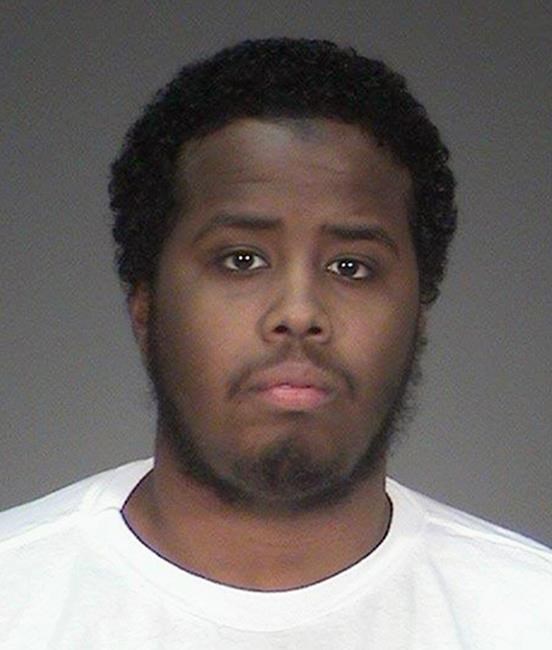Elevate your local knowledge
Sign up for the iNFOnews newsletter today!
Sign up for the iNFOnews newsletter today!
Selecting your primary region ensures you get the stories that matter to you first.

MINNEAPOLIS – A Minnesota man described as a leader of a group of nine who plotted to travel to Syria to fight for the Islamic State group was sentenced to 35 years in prison Wednesday by a federal judge who said he didn’t believe the man’s tearful apologies and words of contrition.
Two other members of what U.S. District Judge Michael Davis repeatedly called a “terrorist cell” — Mohamed Farah and Abdirahman Daud, both 22 — were sentenced earlier Wednesday to 30 years in prison apiece. But Guled Omar, 22, drew the longest sentence of the nine defendants who appeared before Davis this week.
“I understand the seriousness of what I’ve been convicted of, and I understand that I will not be able to go home anytime soon,” Omar told the judge as he awaited his sentence, which ended up being less than the 40 years prosecutors sought. “I always had energy for justice as a young man but I lost my way.”
Omar’s statement sent his mother in the gallery into sobbing uncontrollably while other family members left the courtroom to collect their emotions. Davis didn’t buy it.
“Everything you have said here, I don’t believe,” Davis said.
Prosecutor Andrew Winter said Omar’s tears could not be trusted.
“Only when backed into a corner, does he attempt to offer false contrition. You can’t fix manipulative. You can’t fix deceitful. And you can’t fix Guled Omar. He has blood on his hands,” Winter said.
A jury convicted Omar, Farah and Daud in June of conspiring to provide material support to a foreign terrorist organization and conspiracy to commit murder outside the U.S. Prosecutors said the plot involved of a group of friends in the state’s large Somali community who inspired each other to join the militant group. Some of their friends made it to Syria, but the nine who were caught did not.
Six other defendants, who pleaded guilty instead of going to trial, were sentenced Monday and Tuesday to terms ranging from time served to 15 years, with long terms of supervised release for all. The two who co-operated with federal investigators got the lightest sentences.
An emotional Daud begged his fellow young Muslims not to be blinded as he was and fall prey to jihadist ideology.
“I’m certainly not being persecuted for my faith. I was certainly not entrapped,” Daud said, hanging his head. “I was not going there to pass out medical kits or food. I was going strictly to fight and kill on behalf of the Islamic State.’
Farah, whose 20-year-old brother, Adan Farah, was sentenced Tuesday to 10 years in prison, told Davis he now disavows terrorist groups and realizes they don’t stand for peace.
“We ended up on a road nobody expected,” Farah said. “Your honour, that’s the allure and the dangers of terrorism.”
Minnesota has the largest concentration of Somali immigrants in the U.S. — 57,000, according to census data — and the community has been a target for recruiters. The FBI has said about a dozen people have left Minnesota to join militant groups in Syria in recent years. Before that, more than 22 men were recruited to al-Shabab in Somalia since 2007.
Davis, who has handled all of Minnesota’s terror conspiracy cases, said the resilience and vibrancy of Minnesota’s Somali-American community has made the state stronger and that the sentences he handed down were not an indictment of the community.
“I will fight anyone who says Islam is a dirty religion or one of violence. It is not,” Davis said. “I’ve been stern and harsh in my sentencing for good reason, which is to incapacitate this cell.”
This site is protected by reCAPTCHA and the Google Privacy Policy and Terms of Service apply.
Want to share your thoughts, add context, or connect with others in your community?
You must be logged in to post a comment.